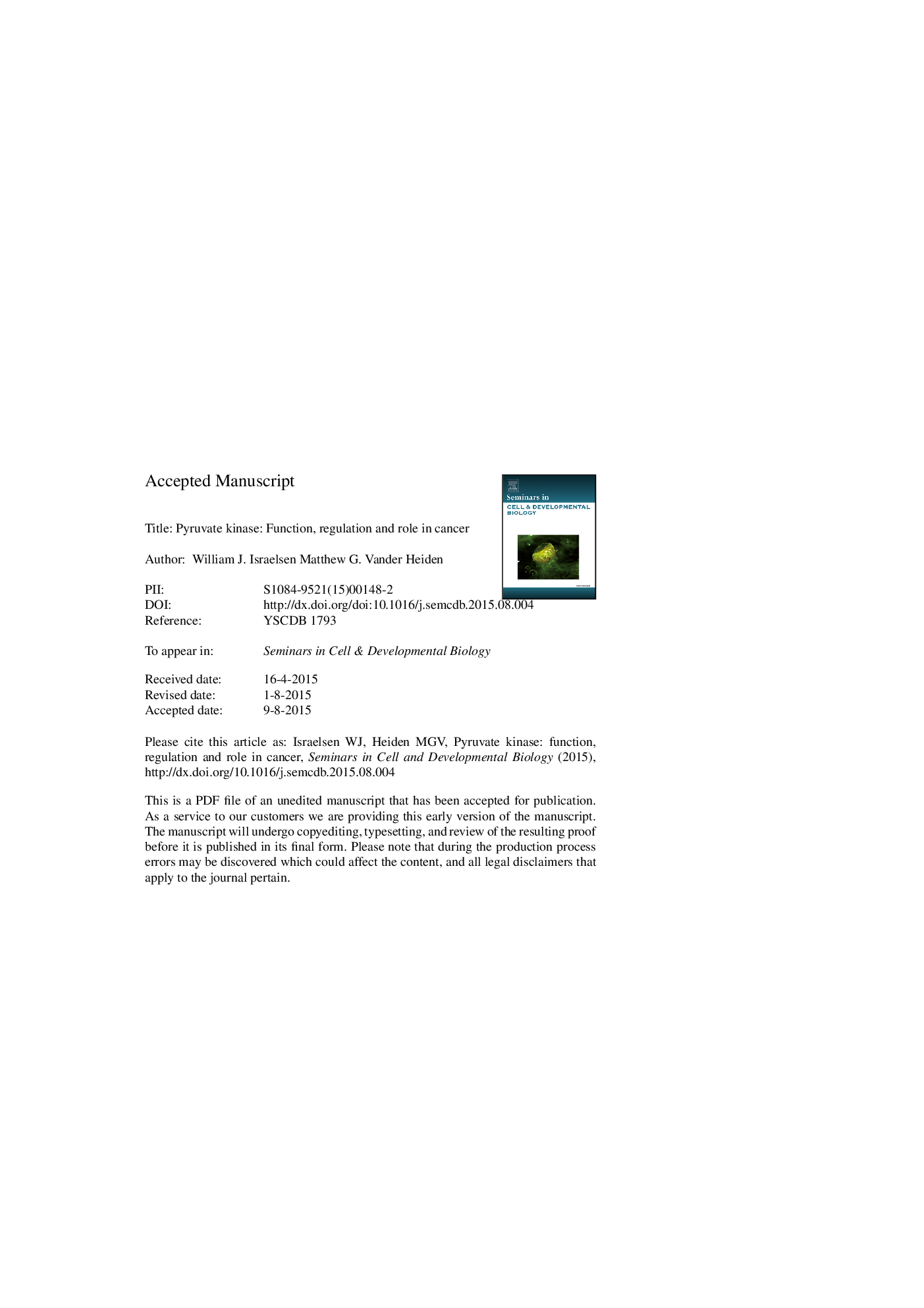| Article ID | Journal | Published Year | Pages | File Type |
|---|---|---|---|---|
| 8480353 | Seminars in Cell & Developmental Biology | 2015 | 30 Pages |
Abstract
Pyruvate kinase is an enzyme that catalyzes the conversion of phosphoenolpyruvate and ADP to pyruvate and ATP in glycolysis and plays a role in regulating cell metabolism. There are four mammalian pyruvate kinase isoforms with unique tissue expression patterns and regulatory properties. The M2 isoform of pyruvate kinase (PKM2) supports anabolic metabolism and is expressed both in cancer and normal tissue. The enzymatic activity of PKM2 is allosterically regulated by both intracellular signaling pathways and metabolites; PKM2 thus integrates signaling and metabolic inputs to modulate glucose metabolism according to the needs of the cell. Recent advances have increased our understanding of metabolic regulation by pyruvate kinase, raised new questions, and suggested the possibility of non-canonical PKM2 functions to regulate gene expression and cell cycle progression via protein-protein interactions and protein kinase activity. Here we review the structure, function, and regulation of pyruvate kinase and discuss how these properties enable regulation of PKM2 for cell proliferation and tumor growth.
Keywords
Related Topics
Life Sciences
Biochemistry, Genetics and Molecular Biology
Cell Biology
Authors
William J. Israelsen, Matthew G. Vander Heiden,
